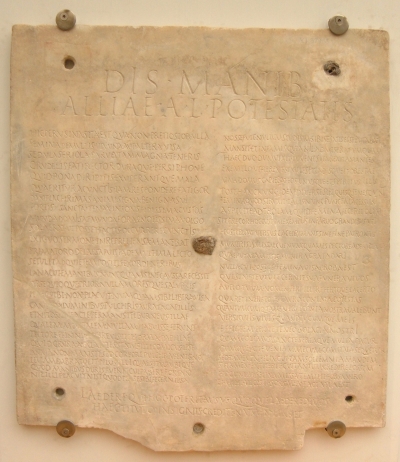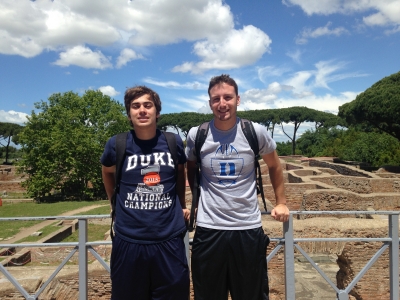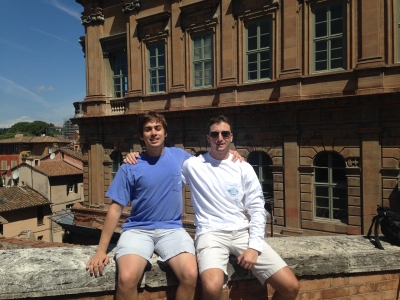
This past summer, I was fortunate enough to receive a research grant from the Teasley Family Antiquities Fund to travel to Italy with George Mellgard (Duke undergraduate). In Italy, we conducted research on the way in which the Ancient Romans viewed women in life and in death. Our research centered on the epitaph Allia Potestas, which is unique in nature because of it featured personal details about the deceased, atypical of other contemporary epitaphs, in addition to standard information such as place of birth (Perugia) and social standing (freedwoman). The epitaph’s erotic description of the deceased and discussion of her sexual preferences also contribute to its novelty.

My role was to compile original translations for Allia Potestas and any other epitaphs or inscriptions that were relevant to George’s thesis and provide George with an analysis of the words I translated from a linguistic standpoint, given my extensive coursework in and familiarity with the Latin language. In addition to translating and providing analysis for Allia Potestas, I did the same for Publius Aelius Liberalis’ tomb, Epafrodito’s tomb and many other inscriptions. Together, George and I were able to gain a level of insight with regards to Roman funerary customs that could only be achieved by visiting and seeing firsthand the tombs and resting places of freedmen and freedwomen.

Personally, travelling to Rome and conducting research on a subject I am passionate about reaffirmed my decision to continue studying Latin and the classics. The opportunity to read and decipher meaning straight from the pen (or in this case, chisel and mallet) of authors who had shaped my academic experience was life changing. I got to engage with the work I was studying on a deeper level and more accurately contextualize Roman writers than I ever could in a classroom setting. To supplement the work that I have done with George regarding his thesis, I have also decided to write an article detailing my commitment to classical scholarship—including my trip to Rome—, which I intend to publish as a follow up to an earlier article I wrote for Education Week (http://www.edweek.org/ew/articles/2013/10/30/10weiss.h33.html). I cannot thank the Teasley Family Antiquities Fund enough for making all of this possible, and I look forward to continuing my study of the classics at Duke.